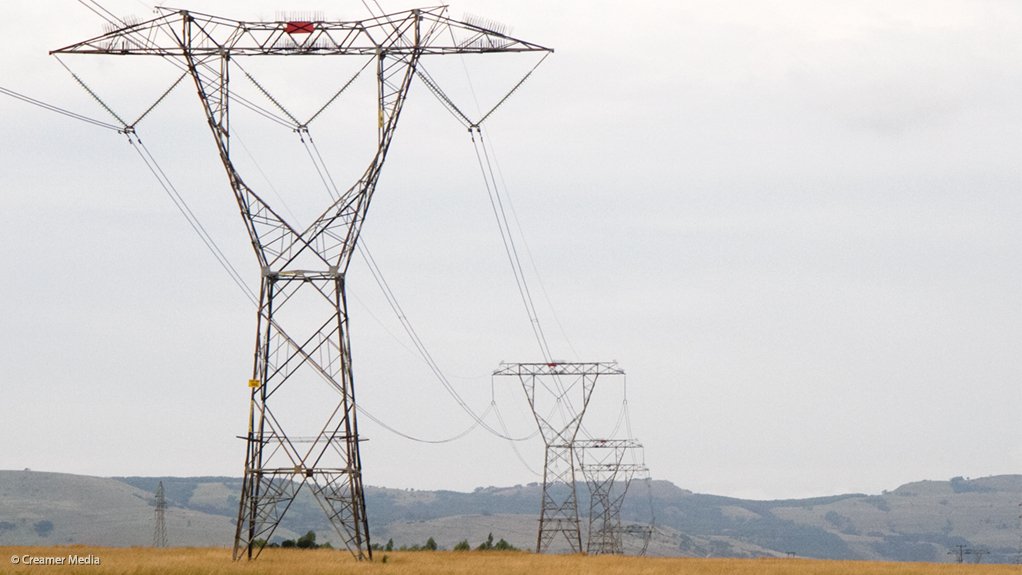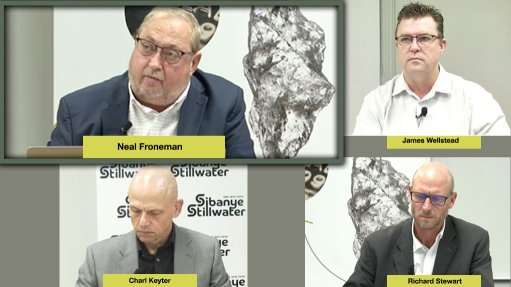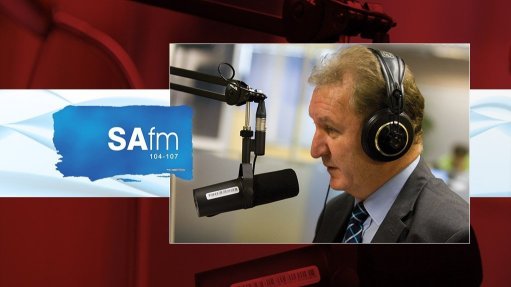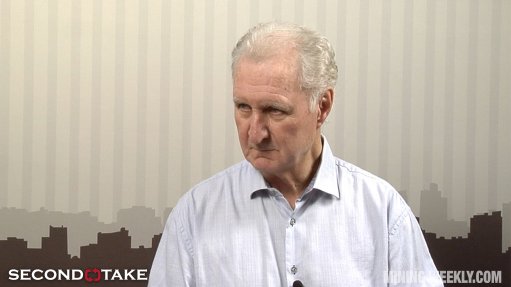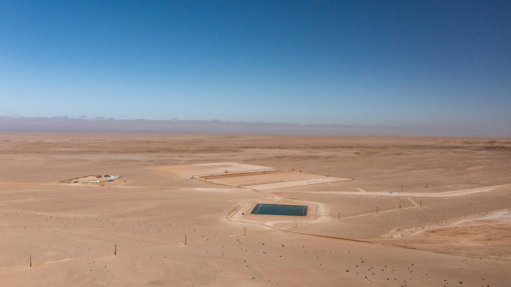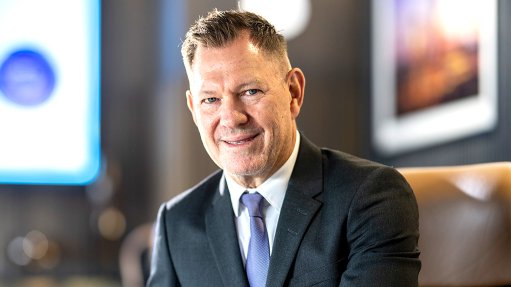Upcoming mini-Budget to include details on Independent Power Transmission pilot project
Details on the approach South Africa will be taking to piloting Independent Power Transmission (IPT) projects as part of a strategy to accelerate the expansion of its electricity grid will be included in the upcoming Medium-Term Budget Policy Statement (MTBPS), a senior official in the office of Electricity and Energy Minister Dr Kgosientsho Ramokgopa has confirmed.
The MTBPS is scheduled to be released by Finance Minister Enoch Godongwana on October 30.
Speaking during a virtual discussion hosted by RES4Africa, the ministry’s head of strategic initiatives and international partnerships, Shaakira Karolia, said significant progress had been made to firm up South Africa’s approach to private participation in the grid, following Cabinet’s approval of a transmission finance pathway in December last year.
Together with the National Treasury and the International Finance Corporation (IFC), the Ministry of Electricity and Energy had narrowed down the IPT procurement options to a build, operate, own and transfer, or BOOT, model, with remuneration based on capacity payments that would be linked to the transmission line’s availability.
South Africa, which has been studying IPT models used internationally, is expected to lean heavily on Brazil’s approach, which includes a price cap set at the tender stage, and the first IPTs are likely to be implemented on transmission corridors in the Northern and Western Cape.
Bidding is expected to be coordinated outside of the department along the lines of the Independent Power Producer Office, and it has been reported previously that this new office could be housed under the Development Bank of Southern Africa.
Should the competitive auction model be used, bidders would submit a yearly revenue requirement to cover the capital, operational and maintenance expenditure of the IPT, as well as equity returns and debt repayments over the contract period, which is typically between 25 and 35 years in other countries.
The National Treasury is also on record as stating that it is not keen to extend large guarantees to IPT projects and that it is working with the World Bank on the creation of a ‘credit guarantee vehicle’ that would provide guarantees without reference to government’s balance sheet.
Ramokgopa, Karolia said, would soon outline government’s approach to IPT’s as part of a broader strategy to be pursued with the National Transmission Company South Africa (NTCSA) to deliver on a Transmission Development Plan (TDP) that requires more than 14 000 km of new powerlines by 2033, alongside 170 new transformers and 40 capacitors.
The TDP is expected to involve investments of about R390-billion and government has concluded that the IPT should be integrated into the roll-out, owing to the financial and capacity constraints of Eskom Holdings’ NTCSA.
Not Privatisation
Karolia stressed that the IPT model endorsed by Cabinet did not amount to the privatisation of the grid, likening the approach to the one adopted by the South African National Roads Agency Limited to expand national roads using tolling.
“We do not see IPTs as privatisation.
“They are really private-sector partnerships to increase infrastructure development in the country – the ownership comes back to the State, and the NTCSA remains responsible for operating the transmission system,” she added.
IFC senior operations officer for Africa Tilana de Meillon, who has been working with government on the IPT options, said no whole-of-network concession was envisaged.
Instead, the proposal was for the private sector to be allowed to implement new transmission lines based on the needs of the TDP, primarily to spread risk and to mobilise financing.
“The implementation agreement effectively only provides the support from the government to ensure the rights of the IPT to implement, own and operate the line.
“The returns are agreed up front [and] it’s typically agreed as a fixed fee,” De Meillon said during the webinar.
Operationalisation Era?
Karolia also reported that the Ministry was working on new transmission regulations in line with the Electricity Regulation Amendment (ERA) Act, to which President Cyril Ramaphosa had assented on August 16.
The promulgation of the Act had been delayed, owing to concerns raised by the South African Local Government Association (Salga) about the definition of ‘reticulation’ used in the new legislation, which it warned could erode local government rights and revenues.
Following consultations with Salga, and having received legal advice, Ramokgopa would write to the President to request that the provisions of the Act come into force later this year, while suspending the definition of reticulation in the Act, and allowing it to revert to the current definition.
An impact assessment would then be undertaken to analyse the practical implications of the definition change, from 132 kV to 11 kV, and whether further consultation and legislative processes should be pursued before making changes.
Comments
Announcements
What's On
Subscribe to improve your user experience...
Option 1 (equivalent of R125 a month):
Receive a weekly copy of Creamer Media's Engineering News & Mining Weekly magazine
(print copy for those in South Africa and e-magazine for those outside of South Africa)
Receive daily email newsletters
Access to full search results
Access archive of magazine back copies
Access to Projects in Progress
Access to ONE Research Report of your choice in PDF format
Option 2 (equivalent of R375 a month):
All benefits from Option 1
PLUS
Access to Creamer Media's Research Channel Africa for ALL Research Reports, in PDF format, on various industrial and mining sectors
including Electricity; Water; Energy Transition; Hydrogen; Roads, Rail and Ports; Coal; Gold; Platinum; Battery Metals; etc.
Already a subscriber?
Forgotten your password?
Receive weekly copy of Creamer Media's Engineering News & Mining Weekly magazine (print copy for those in South Africa and e-magazine for those outside of South Africa)
➕
Recieve daily email newsletters
➕
Access to full search results
➕
Access archive of magazine back copies
➕
Access to Projects in Progress
➕
Access to ONE Research Report of your choice in PDF format
RESEARCH CHANNEL AFRICA
R4500 (equivalent of R375 a month)
SUBSCRIBEAll benefits from Option 1
➕
Access to Creamer Media's Research Channel Africa for ALL Research Reports on various industrial and mining sectors, in PDF format, including on:
Electricity
➕
Water
➕
Energy Transition
➕
Hydrogen
➕
Roads, Rail and Ports
➕
Coal
➕
Gold
➕
Platinum
➕
Battery Metals
➕
etc.
Receive all benefits from Option 1 or Option 2 delivered to numerous people at your company
➕
Multiple User names and Passwords for simultaneous log-ins
➕
Intranet integration access to all in your organisation



